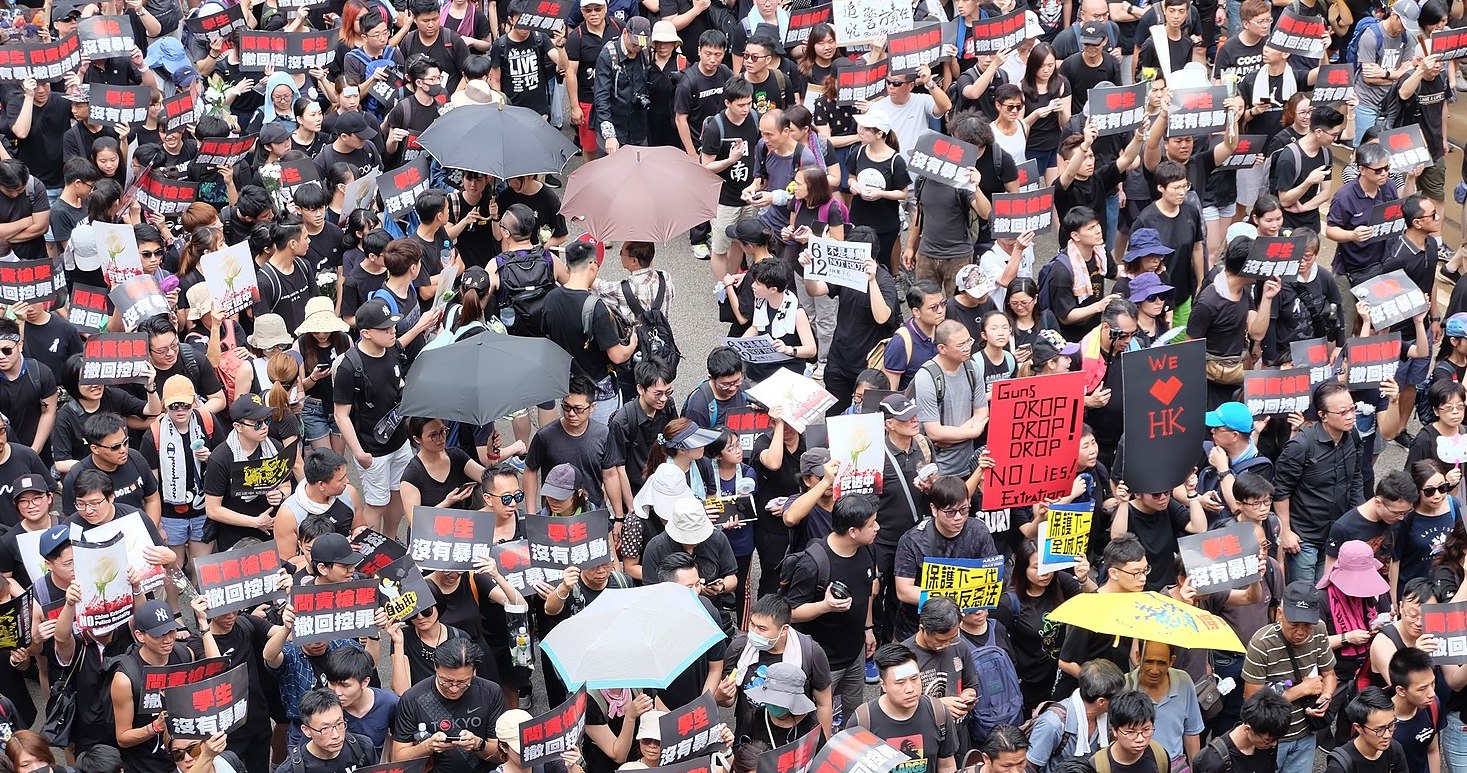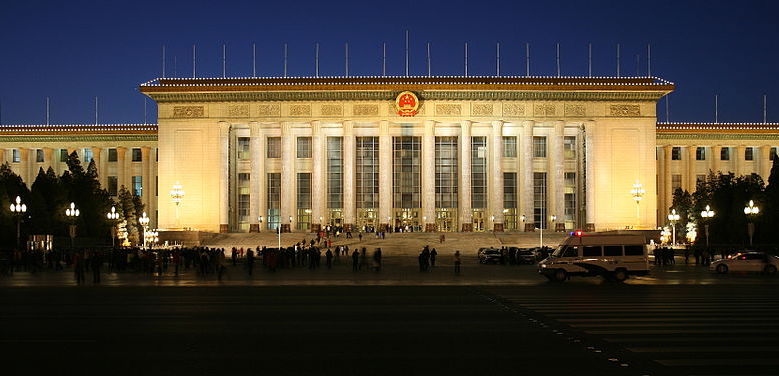Twitter diplomacy and the Hong Kong protest movement

The Anti-Extradition-Law-Amendment Bill (Anti-ELAB) movement in Hong Kong, which later evolved into an anti-authoritarian movement, has exhibited many features unseen in the history of social movements in the Special Administrative Region (SAR).
Among them, the sympathizers and participants in this leaderless movement have actively resorted to social media platforms, notably Twitter, to engage foreign netizens, journalists, and politicians to counter the SAR-government-approved narratives or misinformation disseminated from accounts allegedly backed by the Chinese authorities. The sympathizers call themselves the “Twitter Front” (Twitter 戰線/Zhan Xian, TF), a frontline of the Global Public Relations Campaign of the protest.
Before the Anti-ELAB movement, Twitter – which was exclusively used by political organizations or politicians for strategic communication – was not actively used by ordinary netizens in Hong Kong. But the social media platform has proved itself to be an effective gateway to “internationalize” the home-grown protest movements. Compared to other platforms, Twitter provides a friendlier environment to anonymous accounts and, thus, protects the identities of the protesters against possible surveillance and backlash.
Significantly, the practice of using hashtags and retweet functions can amplify the voice of netizens and enhance the visibility of the hashtag-related tweets. In particular, throughout the process of communication, coordination among Twitter users to post with a specific hashtag circulates emotions, bolsters in-group affirmation, and thus consolidates their attachments to a specific identity. These features, as exemplified in the worldwide attention over the #Bringbackourgirls campaign in Nigeria in 2014, helped bring hashtag activism – or hashtag diplomacy – alive, with a simple, single hashtag.
(At the outset of the spat, Thai netizens deflected Chinese netizens’ assault by making jokes of their own king (Rama X) and government, the latter of which had been regarded as authoritarian and incompetent in the Thai memes. Thai active users are also considered as supporters of democracy movements.)
Between August and October, numerous online news media outlets and LIHKG , a Reddit-like online forum in Hong Kong, published articles instructing how TF netizens could strengthen coordination efforts among themselves. These included using hashtags consistently and concisely (e.g. #HonKongProtest, #StandWithHongKong for posts directly related to the protests; #Policebrutality for those displaying excessive use of force by the Hong Kong Police Force; #ChiNazi for those directly pertained to Chinese repression of minorities at home), rebutting pro-China and pro-HKSAR government narratives, creating and sharing protest-related memes vigorously, and tagging other users (e.g. prominent politicians in U.S. and U.K.) selectively.
By relying on Twitter, the TF netizens hoped that the circulation of tweets could generate sufficient momentum for the U.S. President Donald Trump – a well-known active Twitter user – to pass the Hong Kong Human Rights and Democracy Act (HKHRDA), and to impose sanctions on those Hong Kong and Chinese officials responsible for the Extradition-Law-Amendment Bill.
Passing of the Hong Kong Human Rights and Democracy Act
Indeed, the HKHRDA was passed smoothly in November, featuring two remarkable items that could protect the autonomy of the SAR from further encroachment. First, the Act requires the White House to annually certify Hong Kong’s autonomous status, which justifies the special trade and investment treatment conferred in the Hong Kong Policy Act (1992). In the worst-case scenario, losing the special status is tantamount to the termination of any form of exchange involving “dual use, critical, or other sensitive technologies” – items which China values a lot. Second, the White House is urging coordination with its allies to promote democracy and human rights in Hong Kong, thereby creating a multinational network to maintain the autonomous status of the SAR.
Instead of directly influencing the dynamics of “high politics”, however, TF has manifested its potential to create a transnational political network for Hong-kongers at the grassroots level. Hong Kong netizens’ involvements in the Sino-Thai Twitter War in April clearly displayed the possibilities. Originally a spat between Thai and Chinese netizens over a Thai actor’s comment about the status of Hong Kong and Taiwan, the “meme war” later involved criticisms against Chinese dam-building projects along the Mekong River, the “misconduct” in the South China Sea disputes, and the Chinese “responsibility” in the COVID-19 pandemic, etc. These online fights caused the Chinese embassy in Bangkok to publish posts on social media platforms to reaffirm the traditional Sino-Thai friendships.
To show solidarity with the Thai netizens, whom most Hong Kong netizens perceived as the common victims of “Chinese bullying,” TF netizens joined their rank and deflected the Chinese “trolls” with mockeries and sardonic memes.
#MilkTeaAlliance
They collaborated with Thai users by adding hashtags like #nnevvy (a hashtag used for showing support to the Thai actor and his girlfriend). Later, a Hong Kong FB page (@milktealogy) posted a visual image depicting “milk tea” as a symbol of cultural affinity that shared among Thai, Taiwanese, and Hongkongers. The idea went viral in Twitter, prompting the formation of a “Milk Tea Alliance” (#MilkTeaAlliance) among these users.
While a Thai scholar described the episode as “the first transnational geopolitical twitter war” for Thai people, it was arguably the first campaign that had significantly encouraged Hong Kong key opinion leaders (KOLs) to mobilize their followers to sign on petitions (#StopMekongDam) unrelated to their own domestic business.
Besides, under the frame of “freedom-lovers”, TF netizens have successfully connected the plights endured by the Hong Kong protesters, as individuals, with Vietnam and Thailand, as nation-states. Tweets associated with #MilkTeaAlliance were strongly tied with the negative perception(s) about China’s hegemonic behaviours towards the weaker groups – be it democracy activists, ethnic minorities, or small powers. “Milk Tea Alliance” was a banner through which these disadvantaged groups could rally round, regardless of whether they are states or individuals.
As mentioned, retweets and hashtags make the “emotional contagion effect” feasible, because they can spread out the emotions and identities expressed in each tweet. In the Sino-Thai twitter war, tweets from the “Milk Tea Alliance” were rife with messages that made fun of the vigorous internet censorship regime in China, the ignorance or illiteracy of the Chinese netizens (e.g. #nmslese), or the irresponsibility of China in the worldwide COVID-19 crisis (e.g. #ChinaMustPay). Interestingly, what began as a contest between liberalism and authoritarianism had gradually drifted away and be replaced by pro-/anti-China narratives.
Indeed, at the time of writing, the anti-China sentiment is still vividly associated with #MilkTeaAlliance. Following the recent Sino-Indian border clashes in the Galwan Valley, several TF netizens conveyed condolences towards the Indian casualties by adding hashtag #HKstandswithIndia. Some netizens “invited” their Indian counterparts to join the alliance, as a symbol of solidarity against the “villain”, China.
Nevertheless, focusing on China alone might also constrain the possibility of this nascent transnational alliance. Other than the Chinese factor, many active Twitter users across Southeast Asia and Hong Kong are concurrently fighting against the authoritarian repression at home. After a self-exiled Thai activist was kidnapped in Cambodia, the Twitterverse in Thailand called for rescuing the activist (#saveวันเฉลิม), and abolishing the lèse-majesté law in Thailand (#ยกเลิกม112, the activist was believed to be kidnapped by the Thai authorities for criticizing the regime). But the call has fallen on deaf ears, as not many HK netizens were aware of the incident. Similar apathy was found in the protest against the New Anti-Terrorism Bill in the Philippines (#JunkTerrorBill), which the activists condemned as a draconian measure to silence opposition – many TF netizens reacted coolly.
Black Lives Movement shows limits of HK’s Twitter activism
The shifting attention of the TF netizens from a normative-based narrative (e.g. anti-authoritarian repression, anti-police-brutality) to an instrumental-based practice (e.g. forming alliance to balance China’s oppression) was exposed during the Black Lives Matter (BLM) Movement, when the netizens were split into two camps. At the same time the BLM movement swept across the U.S. following the death of George Flyod, the National People’s Congress of China swiftly approved the bill to impose National Security Legislation on Hong Kong. Once passed, the law is likely to introduce the Chinese law-enforcement agencies inside the SAR, a huge step towards revising the conventional understandings of “One Country, Two Systems”, as traditionally known.
Several TF netizens and prominent activists in Hong Kong were eager to show solidarity with the BLM movement out of their joint commitments against police brutality and state repression. Others were either reluctant to support the BLM protesters – fearing that showing solidarity with them would taint the image of the Hong Kong protesters; or they were worried that Trump would feel betrayed and stepped back from punishing China.
These episodes reflected the challenges faced by a leaderless movement – and Twitter activism – in general, when controlling and stabilizing narratives becomes an extremely strenuous task for the decentralized social movement actors. Contestation gets more frequent and intense, posing difficulties on constructing narratives to legitimize the movements.
It is unclear whether the activists and TF netizens are satisfied with the tight association between Twitter diplomacy and the China factor alone. But if the purpose of fighting a “Twitter front” is to make the voices of protesters – as freedom-fighters – heard in the international arena, the netizens should be more aware of the gap between what they speak, and how they act.
Kalvin Fung is a Ph.D. candidate at Waseda University. His research interests include ASEAN, International relations in Asia-Pacific, and Hong Kong external relations.



